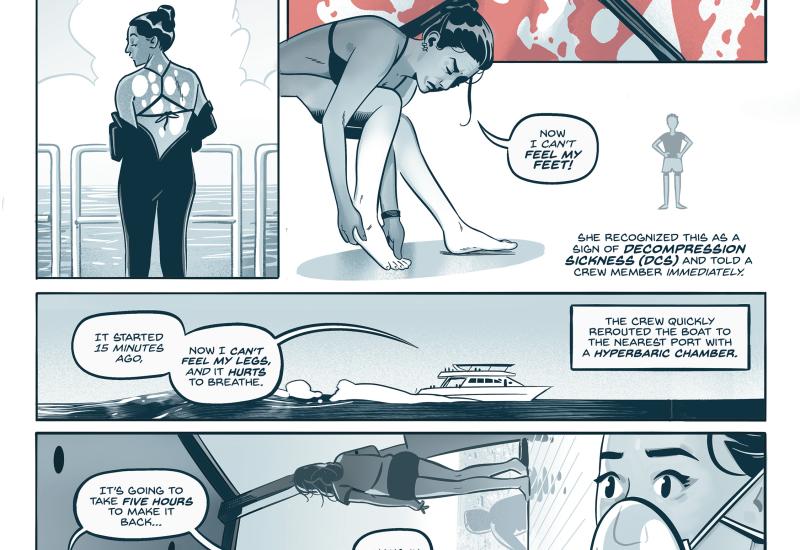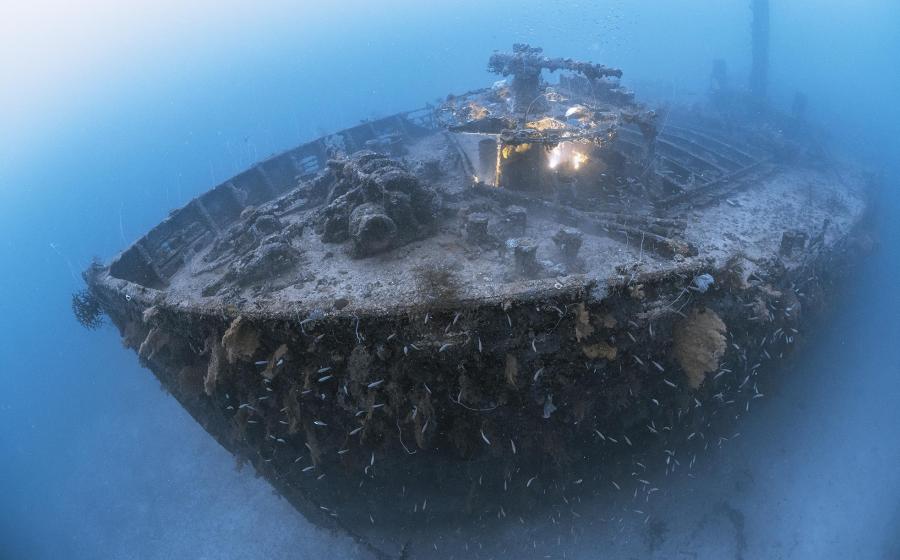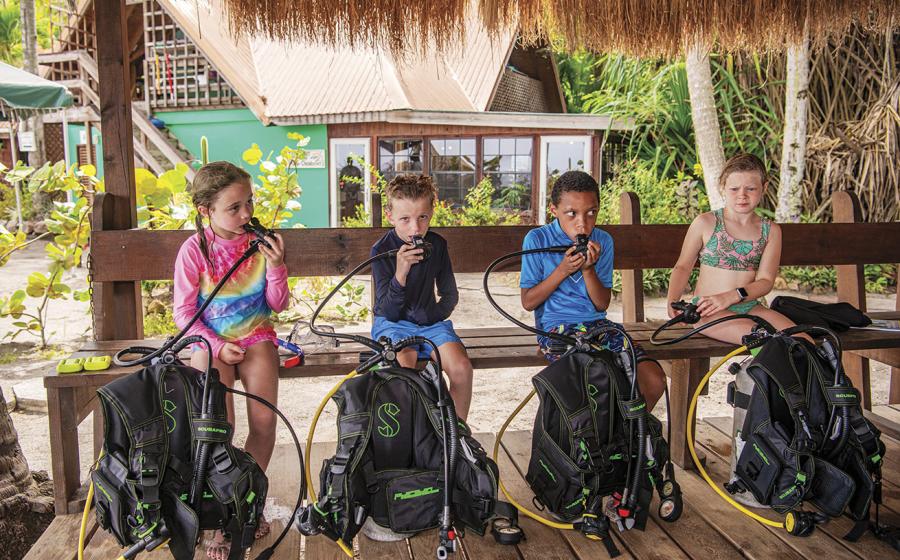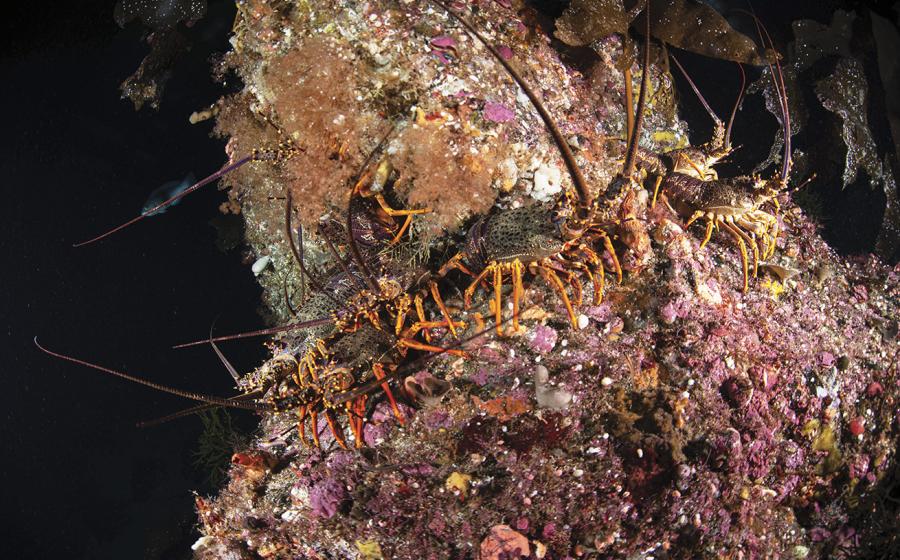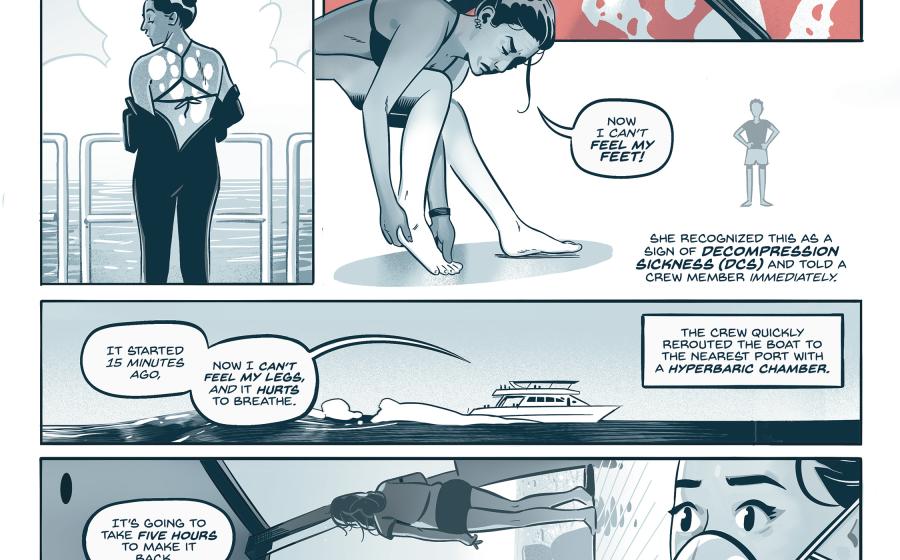Lessons For Life: Out of Breath

Shutterstock
Allison's heavy breathing thundered in her ears as she struggled to fill the 100-pound lift bag for the fourth time. Overinflated with her precious air, the bag slipped from her grasp and rocketed toward the surface. Finally peering through the swirling silt at her forgotten gauges, she recognized the gravity of her situation: 126 feet down, 10 minutes of mandatory deco and only 300 psi left. Desperate, she spotted Mary, closed the long gap and accepted her buddy's octopus just as she took her last breath. The relief she felt as she inhaled deeply from the alternate was short-lived — her second breath was all water and the tunnel vision in her panic-ridden brain told her she had 70 vertical feet between her and her next lungful.
The Divers
Allison and Mary were active divers in their early 40s who made a point to keep pace competitively with their friends in the sport. They were also active boaters, maintaining a 40-foot pleasure craft, which they frequently used for diving. Both had advanced certifications, hundreds of logged dives, and were in excellent health.
The Dive
The week before Allison's incident, the two women had fouled their anchor in 140 feet of water. Their friends ribbed them about their boating skills during the following week, and the recovery became a matter of pride as neither woman's ego could take being "bested" by the rest of the dive group. When they returned to the site, they attached a 100-pound lift bag and pulled the anchor free of the debris pile. Allison had never worked with a lift bag before, and she became entangled in it repeatedly, twice nearly allowing it to drag her to the surface on an uncontrolled ascent. On the fourth attempt, Allison finally let the bag go. She hadn't accounted for the depth of the dive or the amount of gas it took to inflate the large lift bag four times, and seeing her gauge well below the 500-psi mark gave her quite a shock.
The Accident
Recognizing her dire straits, Allison immediately began ascending, hoping to find Mary once she swam above the swirling cloud of silt she had kicked up in her recovery effort. Finding good visibility and spotting Mary off in the distance, she swam quickly, running out of air just as she got to her buddy, signaling frantically. Mary pulled her octopus free and pushed it toward Allison's mouth, who sucked a huge breath of air and signaled for an immediate ascent. When Allison's next breath filled her mouth with water, full-scale panic hit and she bolted for the surface, ignoring her required decompression in the process. When she broke the surface, Allison still had the rubber mouthpiece from Mary's octopus clamped tightly between her teeth.
The Rescue
On the surface Allison quickly explained that she had skipped at least eight minutes of decompression and that she did not feel well at all. Mary ordered Allison not to exert herself and yelled to the person on the boat to throw them a line. Allison climbed the ladder, and immediately put herself on oxygen and lay on the deck. Mary climbed aboard, and they headed for shore. Allison got overnight observation in a small local clinic, coming through her ordeal physically unscathed.
Analysis
Like many dives gone wrong, this one started with oversized egos. Neither diver had any experience or training in this type of recovery, and neither was qualified to dive beyond the no-decompression limits. But rather than ask for assistance, they undertook the recovery on their own. For a lengthy recovery at this depth, both divers should have at least carried redundant air supplies.
A review of Allison's computer would reveal that she had actually missed only four minutes of decompression, even though she reported seeing 10 minutes and then eight minutes on her computer. She likely misread her computer, seeing the total ascent time instead of the decompression time in each of these cases.
Finally, Mary's equipment had not been properly maintained. It had been more than two years since its last service and she had replaced the mouthpiece on her octopus herself the preceding month. Unfortunately, she hadn't properly tightened the zip tie around the mouthpiece. However, even after losing the mouthpiece, had Allison stopped to consider her situation, she still could have breathed on the regulator by either reinserting the second stage into the mouthpiece or holding the second stage with her hand and using it without the mouthpiece. In spite of doing almost everything wrong, good luck prevailed, saving Allison from the potentially fatal consequences of this ill-fated dive.
Lessons for Life
Maintain your equipment. Annual servicing should eliminate the need for major field repairs, and you should always check the security of even seemingly minor parts.
Recovering even relatively light objects in shallow water requires training and practice. Heavier objects and deeper water make this training even more critical. Learn to use any specialized equipment or recovery techniques before taking on a recovery mission.
Decompression dives, or potential decompression dives, also require specialized training and equipment. Get both before you attempt these dives.
Leave your ego in your dive bag. The only thing it will contribute to your dive is a threat to your safety.
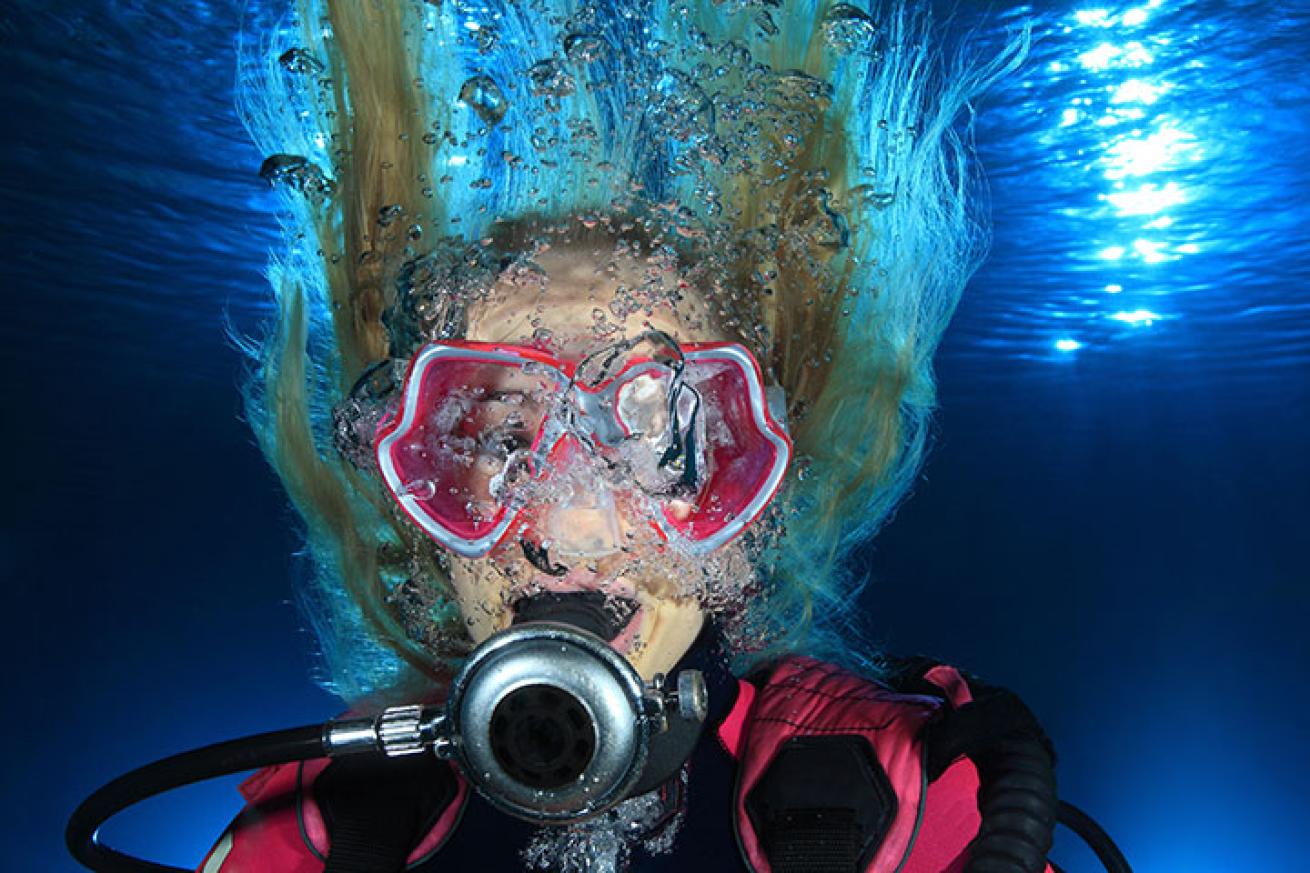
Shutterstock
Allison's heavy breathing thundered in her ears as she struggled to fill the 100-pound lift bag for the fourth time. Overinflated with her precious air, the bag slipped from her grasp and rocketed toward the surface. Finally peering through the swirling silt at her forgotten gauges, she recognized the gravity of her situation: 126 feet down, 10 minutes of mandatory deco and only 300 psi left. Desperate, she spotted Mary, closed the long gap and accepted her buddy's octopus just as she took her last breath. The relief she felt as she inhaled deeply from the alternate was short-lived — her second breath was all water and the tunnel vision in her panic-ridden brain told her she had 70 vertical feet between her and her next lungful.
The Divers
Allison and Mary were active divers in their early 40s who made a point to keep pace competitively with their friends in the sport. They were also active boaters, maintaining a 40-foot pleasure craft, which they frequently used for diving. Both had advanced certifications, hundreds of logged dives, and were in excellent health.
The Dive
The week before Allison's incident, the two women had fouled their anchor in 140 feet of water. Their friends ribbed them about their boating skills during the following week, and the recovery became a matter of pride as neither woman's ego could take being "bested" by the rest of the dive group. When they returned to the site, they attached a 100-pound lift bag and pulled the anchor free of the debris pile. Allison had never worked with a lift bag before, and she became entangled in it repeatedly, twice nearly allowing it to drag her to the surface on an uncontrolled ascent. On the fourth attempt, Allison finally let the bag go. She hadn't accounted for the depth of the dive or the amount of gas it took to inflate the large lift bag four times, and seeing her gauge well below the 500-psi mark gave her quite a shock.
The Accident
Recognizing her dire straits, Allison immediately began ascending, hoping to find Mary once she swam above the swirling cloud of silt she had kicked up in her recovery effort. Finding good visibility and spotting Mary off in the distance, she swam quickly, running out of air just as she got to her buddy, signaling frantically. Mary pulled her octopus free and pushed it toward Allison's mouth, who sucked a huge breath of air and signaled for an immediate ascent. When Allison's next breath filled her mouth with water, full-scale panic hit and she bolted for the surface, ignoring her required decompression in the process. When she broke the surface, Allison still had the rubber mouthpiece from Mary's octopus clamped tightly between her teeth.
The Rescue
On the surface Allison quickly explained that she had skipped at least eight minutes of decompression and that she did not feel well at all. Mary ordered Allison not to exert herself and yelled to the person on the boat to throw them a line. Allison climbed the ladder, and immediately put herself on oxygen and lay on the deck. Mary climbed aboard, and they headed for shore. Allison got overnight observation in a small local clinic, coming through her ordeal physically unscathed.
Analysis
Like many dives gone wrong, this one started with oversized egos. Neither diver had any experience or training in this type of recovery, and neither was qualified to dive beyond the no-decompression limits. But rather than ask for assistance, they undertook the recovery on their own. For a lengthy recovery at this depth, both divers should have at least carried redundant air supplies.
A review of Allison's computer would reveal that she had actually missed only four minutes of decompression, even though she reported seeing 10 minutes and then eight minutes on her computer. She likely misread her computer, seeing the total ascent time instead of the decompression time in each of these cases.
Finally, Mary's equipment had not been properly maintained. It had been more than two years since its last service and she had replaced the mouthpiece on her octopus herself the preceding month. Unfortunately, she hadn't properly tightened the zip tie around the mouthpiece. However, even after losing the mouthpiece, had Allison stopped to consider her situation, she still could have breathed on the regulator by either reinserting the second stage into the mouthpiece or holding the second stage with her hand and using it without the mouthpiece. In spite of doing almost everything wrong, good luck prevailed, saving Allison from the potentially fatal consequences of this ill-fated dive.
Lessons for Life
Maintain your equipment. Annual servicing should eliminate the need for major field repairs, and you should always check the security of even seemingly minor parts.
Recovering even relatively light objects in shallow water requires training and practice. Heavier objects and deeper water make this training even more critical. Learn to use any specialized equipment or recovery techniques before taking on a recovery mission.
Decompression dives, or potential decompression dives, also require specialized training and equipment. Get both before you attempt these dives.
Leave your ego in your dive bag. The only thing it will contribute to your dive is a threat to your safety.

